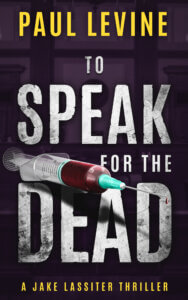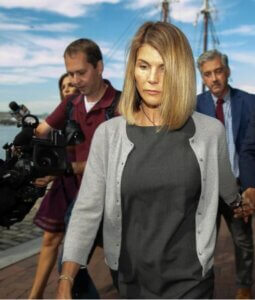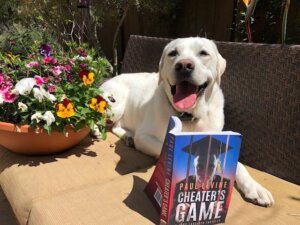AUTHOR’S NOTE: Here’s a reader’s recent email: “I loved EARLY GRAVE but haven’t read the earlier books in the series. Could you give me a brief synopsis of Jake Lassiter’s background?”
Sure. Here’s an excerpt from FOOL ME TWICE where the linebacker-turned-lawyer reveals (not quite) all.
My name is Jake Lassiter.
I am broad-shouldered and sandy-haired, and my neck threatens to pop the top button on my shirt. I have a crooked nose – thanks to a forearm through my facemask – and I look more like a longshoreman than a lawyer.
I am not invited by Ivy League institutions to lecture on the rules of evidence or the fine art of oral advocacy. Downtown lawyers do not flock to the courthouse to see my closing arguments. I don’t know the secrets of winning cases, other than playing golf with the judges and contributing cash to their re-election campaigns. I don’t know what goes through jurors’ minds, even when I sidle up to their locked door and listen to the babble through the keyhole. 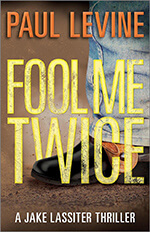
In short, I am not the world’s greatest trial lawyer. Or even the best in the Miami office building where I hang my shingle, or would, if I knew what a shingle was. I graduated in the top quarter of the bottom third of my law school class…night division. My diploma is fastened by duct tape to the bathroom wall at home. It covers a crack in the plaster above the toilet and forces me to contemplate the sorry state of the justice system a few times each day.
I went to law school after a few undistinguished years as a bench-warming linebacker, earning slightly more than league minimum with the Miami Dolphins. In my first career, including my days as a semi-scholar athlete at Penn State, I had two knee operations, three shoulder separations, too many concussions to count, plus a broken nose and turf toe so bad my foot was the size and color of an eggplant.
In my second career, I’ve been ridiculed by Armani-suited lawyers, jailed for contempt by ornery judges, and occasionally paid for services rendered.
I never intended to be a hero, and I succeeded.
On this humid June morning, I sat at the defense table, gathering my thoughts, then disposing of most of them, while my client, Louis (Blinky) Baroso, whispered unsolicited and irrelevant advice. Meanwhile, I stared at the sign above the judge’s bench: “We Who Labor Here Seek Only the Truth.” Sure, sure, and the check’s in the mail.

Philosophers and poets may be truth seekers. Lawyers only want to win. Judges want to clear their calendars. And jurors want to hit the road before rush hour on South Dixie Highway.
As for ethics. I’m not interested in the rules made up by Bar Association bigwigs with gold nugget cufflinks who gather in ritzy hotels to celebrate their own self-importance. Their rules are intended to protect clients and industries with the most money. It’s not unlike my old game where a hard tackle on a high-paid quarterback can be penalized as “unnecessary roughness” when the hit would be lawful on anyone else.
I have a few sayings I live by.
“Buckle your chinstrap. Law is a contact sport.”
“Rough justice is better than none.”
“If your cause is just, no case is impossible.”
“They don’t call us sharks for our ability to swim.”
And finally this: “I prefer cases I believe in. Best is to have a client you like, a cause that’s just, and a check that doesn’t bounce. Two out of three, and you’re ahead of the game.”
I have my own code, and you won’t find it in any books. I won’t lie to a judge, bribe a cop, or steal from a client. Other than that, it’s pretty much anything goes. Still, I draw the line on whose colors I’ll wear. I won’t represent child molesters. Yeah, I know, everybody’s entitled to a defense, and the lawyer isn’t there to assert the client’s innocence, just to force the state to meet its burden of proof. Cross-examine, put on your case, and let the chips fall where they may.
Bull!

When I defend someone, I’m not just a hired gun. I lose a piece of myself and take on a piece of my client. That doesn’t mean I represent only innocent defendants. If I did, I would starve.
My first job after law school was in the Public Defender’s office, which hired me because I wasn’t afraid of walking through the county jail parking lot after midnight. My first customers, as I liked to call them, were folks too poor to hire lawyers with a little gray in their hair. I quickly learned that my clients’ poverty didn’t make them noble. I also got an education from my repeat customers, most of whom knew more criminal law than I did. Nearly all were guilty of something, though the state couldn’t necessarily prove it.
Then I moved up – from the gutter to the curb – and these days I represent a higher grade of dirtbag. My clients don’t pistol-whip liquor store clerks for a hundred bucks in the till. But they might sell paintings by a clever art student as undiscovered works of Salvador Dali, or ship vials of yogurt as prize bull semen, or hawk land on Machu Picchu as vacation property. All of which Blinky Baroso, a second-rate grifter and con man, did, at one time or another. Sometimes twice.
# # #
FOOL ME TWICE: THE CRITICS SPEAK
“Twice as good as Grisham, and four times the fun.” – Armchair Detective
“Wildly entertaining blend of raucous humor and high adventure.” – St. Louis Post-Dispatch
“Levine provides suspense, a little romance, some social commentary, and a huge helping of humor. For sheer entertainment, the Lassiter series is as good as any.” – Booklist
FOOL ME TWICE is available in paperback, audio and ebook formats. Visit Paul Levine’s Amazon Author Page for more information about the “Jake Lassiter” and “Solomon vs. Lord” series.
# # #
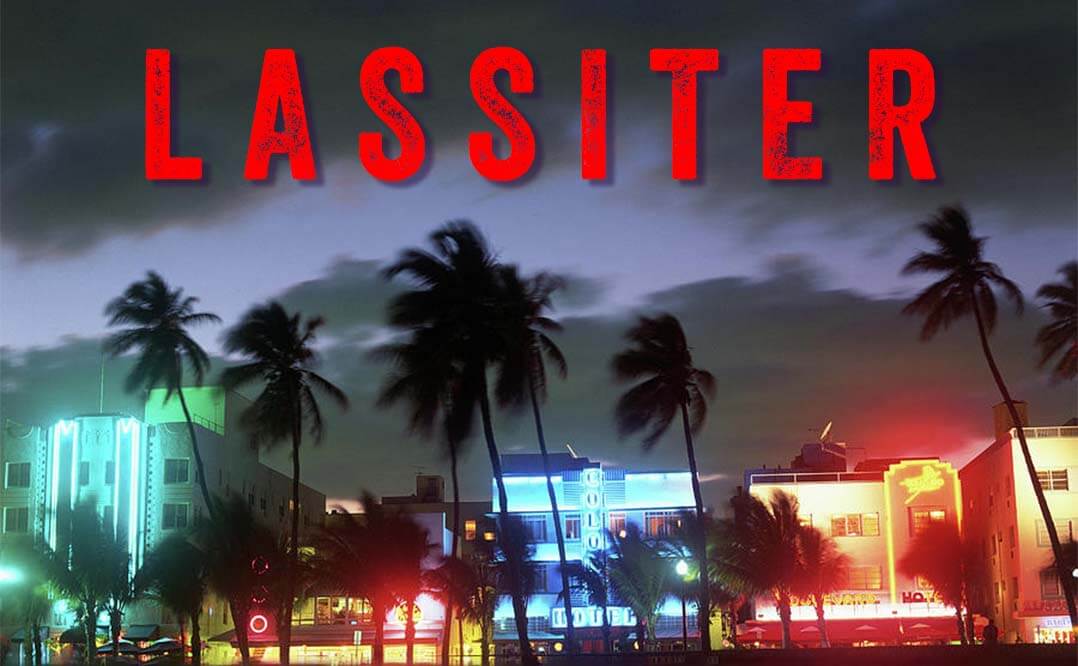

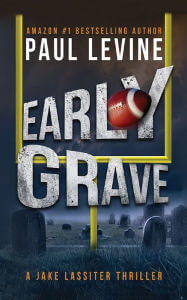 This is where character and plot merge. “Justice requires lawyers who are prepared, witnesses who tell the truth, judges who know the law, and jurors who stay awake. Justice is the North Star, the burning bush, the holy virgin. It cannot be bought, sold or mass produced. If you are to spend your life in its pursuit, it is best to believe it exists and hope that you can attain it.”
This is where character and plot merge. “Justice requires lawyers who are prepared, witnesses who tell the truth, judges who know the law, and jurors who stay awake. Justice is the North Star, the burning bush, the holy virgin. It cannot be bought, sold or mass produced. If you are to spend your life in its pursuit, it is best to believe it exists and hope that you can attain it.”
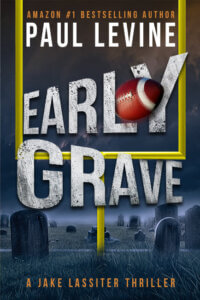
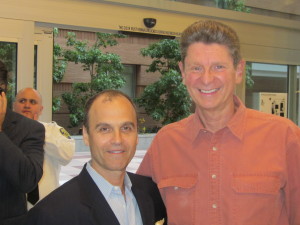
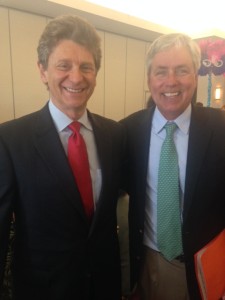
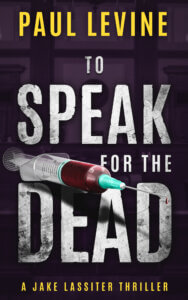
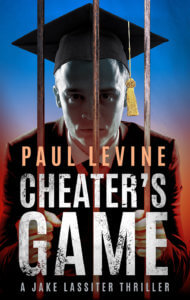
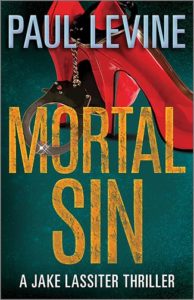 *Lassiter is charged with killing his girlfriend and banker who was about to report him to the authorities for allegedly stealing from clients. –
*Lassiter is charged with killing his girlfriend and banker who was about to report him to the authorities for allegedly stealing from clients. – 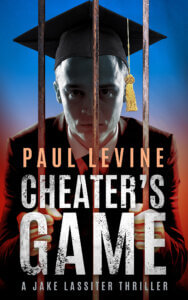 Making a nearly identical argument, legendary
Making a nearly identical argument, legendary 
